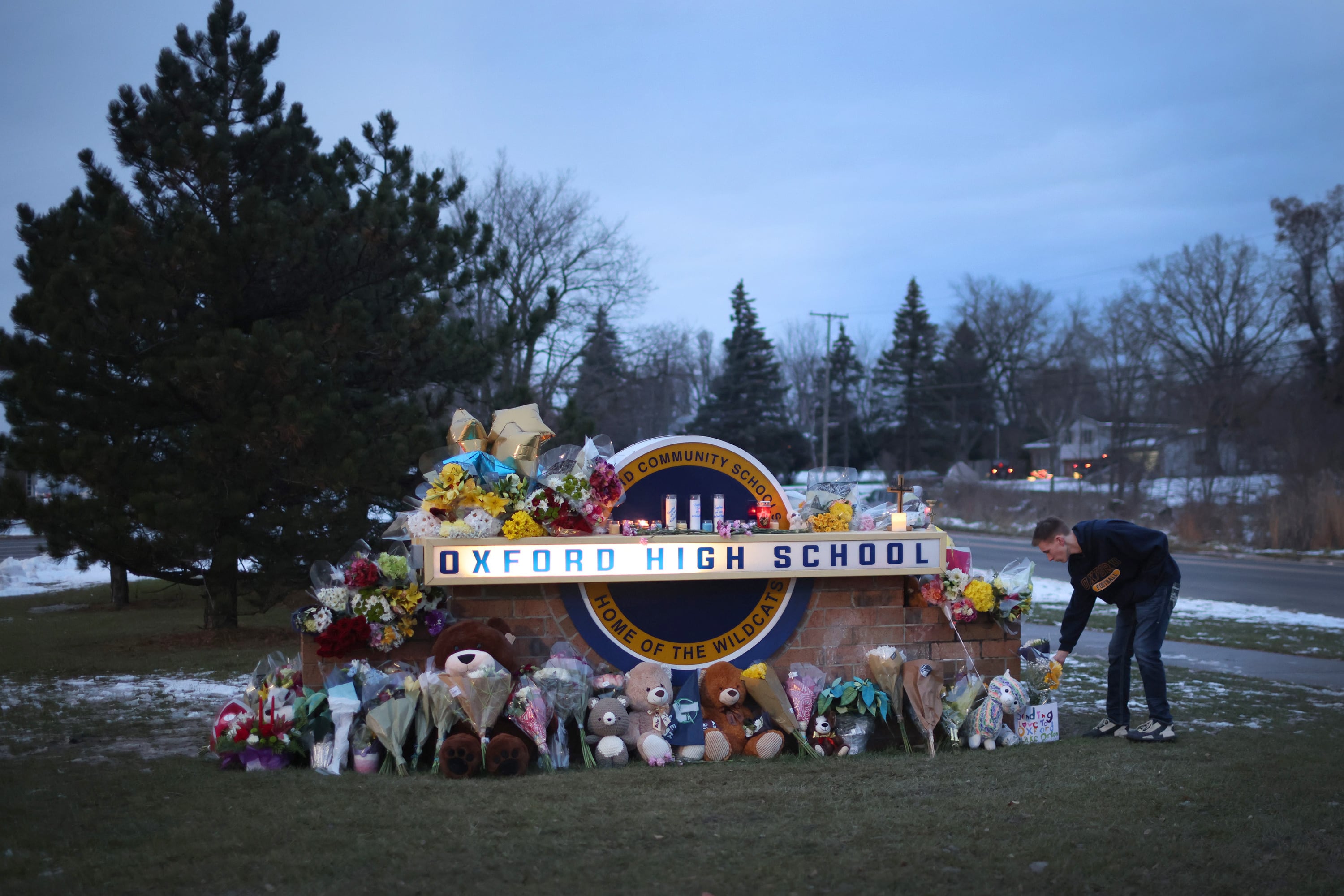Sign up for Chalkbeat Detroit’s free daily newsletter to keep up with the city’s public school system and Michigan education policy.
A package of bills aimed at preventing violence in Michigan schools passed a legislative hurdle Wednesday– days after the three-year anniversary of the Oxford High School shooting in which four students were killed.
The five proposed bills call for more stringent protocols for responding to emergencies at schools and more mental health support for struggling students, among other measures. The House Education Committee voted to move the bills to a full vote in the House Wednesday afternoon.
In order to become law, the bills will need to move through several more steps in the legislative process. If they pass a vote in the House, they would also have to clear a vote in the Senate.
The school safety legislation is one of the top priorities Democrats said they want to see solidified before the end of the year, when they lose control of the state government.
The bills were introduced as a bipartisan effort and some have the support of Republican members of the committee.
Before the committee meeting Wednesday, gun violence survivors and advocates called on legislators to pass the bills.
In March, the committee heard testimony from school mental health professionals, safety experts, and education leaders saying the legislation could save lives.
One of the bills would increase oversight of threat assessment – the process of determining if a student poses a risk of physically harming themselves or others.
That bill was introduced in response to the findings of a third-party report on the response to the Nov. 30, 2021 Oxford shooting. That report found the killings could have been prevented if proper threat assessment and suicide prevention were carried out by school staff and law enforcement.
“Oxford had a threat assessment policy,” said Rep. Kelly Breen, a Democrat from Novi who co-sponsored the legislation, during a committee hearing on Tuesday. “It was not implemented, and we’ve seen the horrible results of that.”
One of the bills would increase oversight of threat assessment – the process of determining if a student poses a risk of physically harming themselves or others.
That bill was introduced in response to the findings of a third-party report on the response to the Nov. 30, 2021 Oxford shooting. That report found the killings could have been prevented if proper threat assessment and suicide prevention were carried out by school staff and law enforcement.
“Oxford had a threat assessment policy,” said Rep. Kelly Breen, a Democrat from Novi who co-sponsored the legislation, during a committee hearing on Tuesday. “It was not implemented, and we’ve seen the horrible results of that.”
The bills would also:
- Require every public school to have a behavior threat assessment and management team that would monitor students for concerning behavior. Students identified as struggling would be provided with a plan for support.
- Require the Michigan State Police to create standardized terminology for use during school emergencies. All schools and districts in the state would also be required to adopt that terminology, which supporters say would create less confusion during crises.
- Require the MSP to make training available to schools on how to use threat assessment materials.
- Makes school threat assessment teams responsible for educating the school community about the warning signs someone may pose a threat of physical violence.
- Mandate that the Michigan Office of School Safety notify district emergency and safety managers of any tips regarding potential threats to schools in their system as soon as possible or within 24 hours. Local law enforcement would also have to be notified within that time frame.
- Create a permanent School Safety and Mental Health Commission in the Michigan Department of Education. The existing commission, which was created in 2022, focuses mostly on physical security threats. That commission will be phased out for a new one that will include education, school safety, and mental health experts.
Rep. Brad Paquette, a Republican from Niles, was the sole vote on the committee against the two bills related to creating a standardized terminology response plan. He abstained from voting on the other bills.
Rep. Dylan Wegela, a Democrat from Garden City, Rep. Gregory Markkanen, a Republican from Hancock, and Rep. Gina Johnsen, a Republican from Odessa, all voted against the bills related to the behavioral threat assessment teams and updating the school safety commission membership.
Johnsen said during Tuesday’s committee meeting she was concerned clergy would not be included in the definition of counselors who could serve on threat assessment teams at private schools.
Rep. Pauline Wendzel, a Republican from Bainbridge Township, abstained from voting on the bill related to behavioral threat assessment teams.
Two bills introduced by Republicans that were part of the original package on school safety legislation were not considered by the committee.
Hannah Dellinger covers K-12 education and state education policy for Chalkbeat Detroit. You can reach her at hdellinger@chalkbeat.org.





